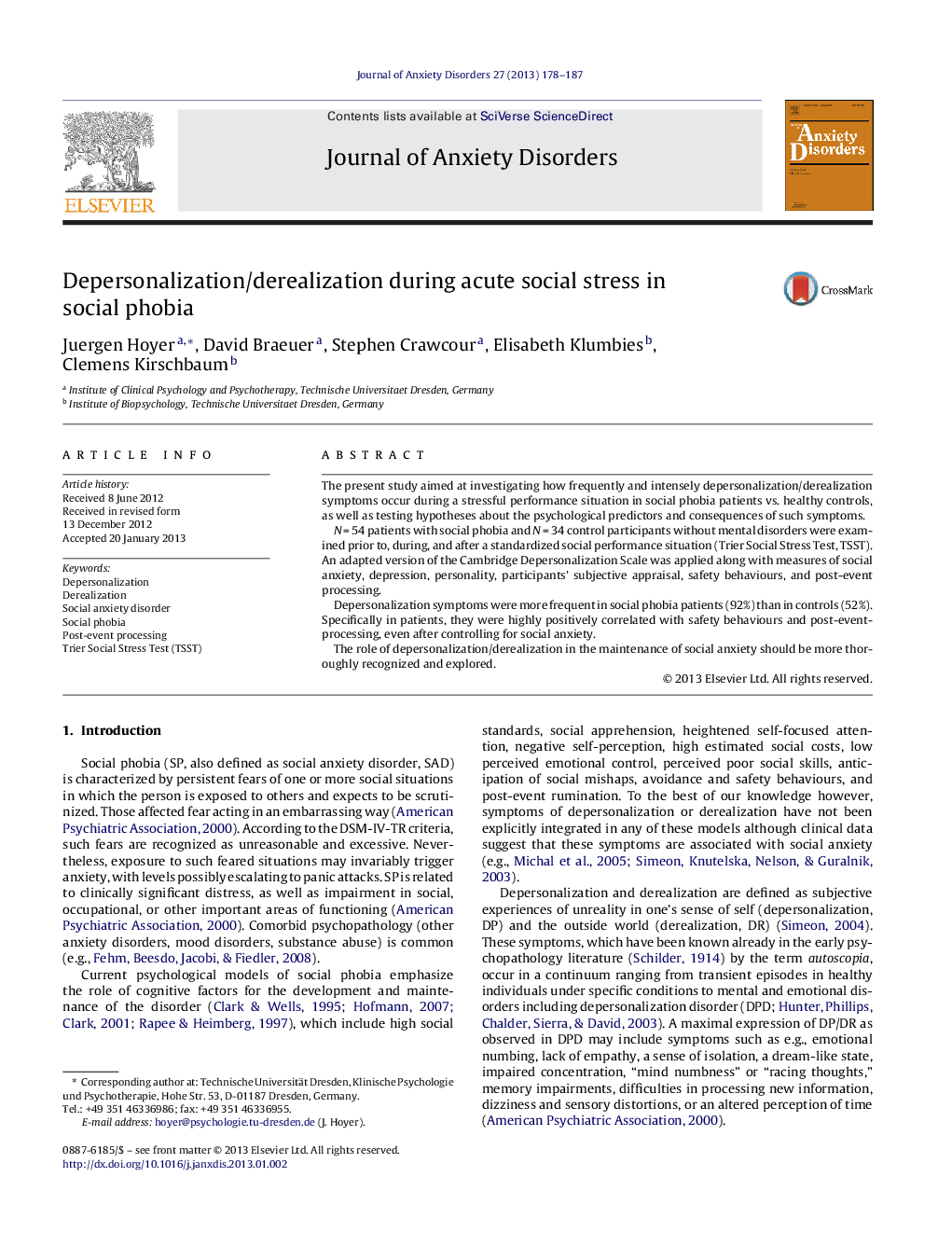| Article ID | Journal | Published Year | Pages | File Type |
|---|---|---|---|---|
| 909373 | Journal of Anxiety Disorders | 2013 | 10 Pages |
The present study aimed at investigating how frequently and intensely depersonalization/derealization symptoms occur during a stressful performance situation in social phobia patients vs. healthy controls, as well as testing hypotheses about the psychological predictors and consequences of such symptoms.N = 54 patients with social phobia and N = 34 control participants without mental disorders were examined prior to, during, and after a standardized social performance situation (Trier Social Stress Test, TSST). An adapted version of the Cambridge Depersonalization Scale was applied along with measures of social anxiety, depression, personality, participants’ subjective appraisal, safety behaviours, and post-event processing.Depersonalization symptoms were more frequent in social phobia patients (92%) than in controls (52%). Specifically in patients, they were highly positively correlated with safety behaviours and post-event-processing, even after controlling for social anxiety.The role of depersonalization/derealization in the maintenance of social anxiety should be more thoroughly recognized and explored.
► First test of depersonalization/derealization symptoms during acute social stress. ► Depersonalization was frequent, but specifically pronounced in social phobia. ► In social phobia, safety behaviours were the best predictor of depersonalization. ► Depersonalization strongly predicted post-event-processing in social phobia. ► Findings broaden understanding of maintenance processes in social phobia.
